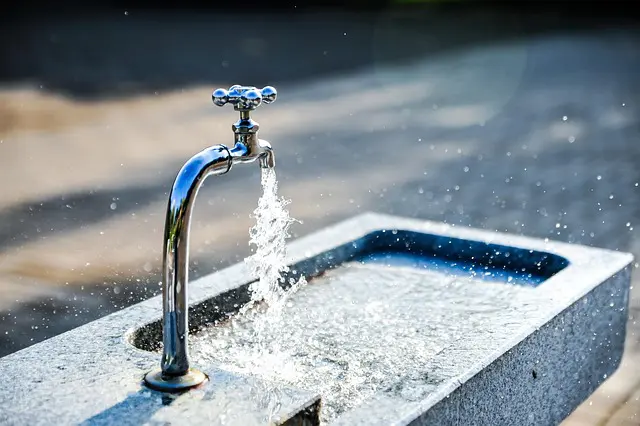
EPA’s Drinking Water Quality Report: Overview Despite Ireland’s drinking water remaining of very high quality—over 99.8% of public water supply samples met safety standards in 2024—climate change is expected to increase future risks to water security. A new report from The Environmental Protection Agency (EPA) warns that rising temperatures, more frequent droughts, and extreme rainfall […]
Despite Ireland’s drinking water remaining of very high quality—over 99.8% of public water supply samples met safety standards in 2024—climate change is expected to increase future risks to water security. A new report from The Environmental Protection Agency (EPA) warns that rising temperatures, more frequent droughts, and extreme rainfall will reduce water availability and introduce more pollutants into rivers and lakes over the next 25 years.
In 2024, Ireland made progress in improving water safety, upgrading 27 additional treatment plants for better disinfection, bringing the total to 405. Monitoring systems now oversee 517 plants serving 3.8 million people, and risk assessments under Drinking Water Safety Plans are advancing. However, the EPA remains concerned about the slow pace of removing lead from water supply networks.
Lead poses serious health risks, especially to young children, and with legal limits set to tighten by 2036, the EPA is urging more decisive action from the government and Uisce Éireann. The Department of Housing has committed to reviewing lead removal progress in 2025. While the EPA confirms Ireland’s public water quality remains high, it stresses that ongoing investment and attention to at-risk supplies and infrastructure upgrades are essential to maintaining safe and resilient water services in the years ahead.
While the number of ‘at-risk’ water supplies on the EPA’s Remedial Action List (RAL) has decreased to 45 (down from 57 in 2023), these still serve nearly half a million people, and several have been on the list for more than two years. The EPA has taken enforcement action in 2024, issuing 20 legally binding directions to Uisce Éireann to ensure long-term improvements are made.
Ireland’s drinking water is under increasing threat from climate change, according to new government analysis. Rising temperatures, changing rainfall patterns, and more extreme weather events are expected to make clean water supplies both scarcer and more polluted over the next 25 years. Ireland’s water infrastructure, much of which is aging and already under strain, is ill-equipped to handle the dual pressures of more frequent floods and droughts. Flooding can damage treatment facilities and distribution networks, while droughts can reduce the flow and quality of source waters.
Access to clean drinking water is a fundamental human right and critical to the functioning of health systems, agriculture, and industry. Without urgent adaptation measures—such as upgrading infrastructure, improving land use practices, investing in resilient water sources, and strengthening environmental protections—Ireland risks facing increasing water insecurity in a changing climate.
This issue underscores the urgent need for integrated water resource management, climate-resilient planning, and sustained public investment to protect one of the country’s most essential resources.
More frequent summer droughts, already being observed, will reduce water levels in rivers and lakes. As flows decline, pollutants—including natural minerals like manganese—become more concentrated, discolouring water and making it harder to treat. Warmer conditions also reduce oxygen levels in freshwater, harming aquatic life and leading to contamination from decomposing plants and fish.
At the same time, heavier and more intense winter rainfall increases runoff from farms, urban areas, and degraded peatlands. This carries nutrients, waste, and soil into rivers and lakes, fuelling harmful algal blooms and making water treatment more difficult. Ireland’s reliance on “run-of-river” water supplies—with limited storage capacity—makes the system particularly vulnerable to these shifts.
Higher temperatures also raise the risk of disease-causing organisms like cryptosporidium, which thrive in warmer water. Meanwhile, rising sea levels—potentially up to half a metre by 2050—and more intense storms could push saltwater into freshwater sources, further degrading supplies.
Storms also pose a serious threat to infrastructure, damaging treatment plants, rupturing pipes, and knocking out the electricity needed to operate water services. While rare, prolonged freezes can also break pipes and disrupt water delivery.
With Ireland’s population growing and water demand rising, the risks to water quality and supply will worsen without intervention. The EPA’s report and Remedial Action List has highlighted key priorities for Uisce Éireann to address on a national level to protect and improve public water services. EPA also welcomes the Department of Housing, Local Government and Heritage commitment to review progress to remove lead from the supply network and public buildings. This will require ongoing oversight and major investment to upgrade and climate-proof infrastructure, expand water storage, and better protect water sources from pollution and extreme weather.
At All-Ireland Sustainability, we’re committed to building a greener, fairer island—together. Stay informed on the latest environmental initiatives, community action, and policy developments shaping sustainability across Ireland, North and South.
👉 Sign up for our newsletter today and be the first to hear about upcoming events, expert insights, and ways to get involved.
Whether you’re a seasoned advocate or just starting your journey, new members are always welcome—your voice matters.
Subscribe now and be part of the All-Ireland Sustainability network.